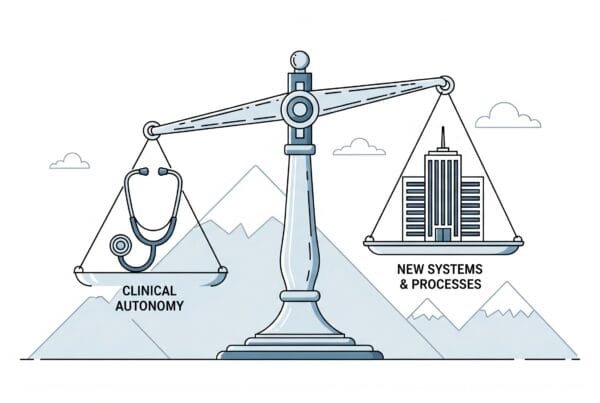The market for GI & Hepatology practices in Memphis is highly active, marked by strong buyer interest from private equity and strategic health systems. For practice owners, this presents a significant opportunity, but realizing your practice’s full value requires strategic preparation and a deep understanding of market dynamics. This guide provides key insights into the Memphis market, valuation drivers, and the sale process to help you navigate your transition with confidence and clarity.
Memphis Market Overview: A Magnet for Investment
The Memphis GI & Hepatology market is experiencing a period of intense consolidation. This trend is not random. It is driven by specific economic and strategic factors that make practices like yours attractive to well-capitalized buyers. Understanding these forces is the first step toward positioning your practice for a successful sale.
The Rise of Private Equity Platforms
Private equity (PE) firms see immense value in gastroenterology. They are actively creating large-scale platforms by acquiring and merging successful practices. A prime local example is Webster Equity Partners’ acquisition of Memphis-based Gastro One to form One GI. This trend means there are buyers in your backyard actively looking for strong, independent practices to join their growing networks. These buyers bring capital and operational support but have specific criteria they look for.
Interest from Strategic Buyers
Beyond private equity, large healthcare companies, known as strategic buyers, are also expanding their footprint in the GI space. The recent acquisition of a majority stake in GI Alliance by Cardinal Health shows the high level of confidence these large players have in the sector. These buyers are often looking to integrate GI services into their broader healthcare delivery systems, creating a different kind of opportunity for sellers. Favorable reimbursement trends for procedures in Ambulatory Surgery Centers (ASCs) only add to the appeal for all buyer types.
Key Considerations for Your Memphis Practice
Beyond the market forces, the unique characteristics of your practice will determine its appeal to buyers. A potential buyer will look past the surface and conduct deep due diligence on your operations. The most successful sales are built on a foundation of strong business operations. Think about your practice in terms of its payer mix, patient volume, and referral patterns. More importantly for a GI practice, buyers place a high premium on ancillary services, especially the ownership and profitability of an Ambulatory Surgery Center (ASC) or an in-office endoscopy suite. You also need to consider your personal goals. What role do you want to play after the sale? Your answer will help determine the right type of buyer and deal structure for you.
3 Trends Driving Market Activity Right Now
The Memphis GI market isn’t just active; it’s accelerating. If you’re considering a sale, it’s helpful to know what’s driving the current wave of transactions. Understanding this momentum can help you time your exit to maximize value. Here019s what we are seeing on the ground:
- A Surge in Transactions. Recent years have seen a record number of deals in the GI space. This high volume creates a competitive environment where multiple buyers may bid for a single, well-run practice. This competition is what drives premium valuations.
- Buyers Paying for Stability. In an uncertain economy, healthcare is seen as a stable investment. GI practices, with their steady demand and non-discretionary procedures, are particularly attractive. Buyers are confident in the future of the specialty and are willing to pay for that security.
- The Scramble for Platforms. As PE-backed platforms like One GI mature, they are under pressure to grow. This fuels their appetite for acquiring independent practices in key markets like Memphis. For practice owners, this means you are not just selling a business; you are potentially a strategic piece of a much larger puzzle.
Understanding the Sale Process
Selling your practice is a structured process, not a single event. The most common mistake we see is owners waiting until they are ready to sell before they start preparing. The journey truly begins 12 to 24 months before you go to market. It starts with getting your financial, operational, and legal documents in order. From there, the process involves confidentially marketing the practice to a curated list of qualified buyers, negotiating offers, and entering a period of intense buyer due diligence. This is where buyers scrutinize everything from your financial statements and employment contracts to your regulatory compliance. Navigating this requires a coordinated team of experts, including healthcare attorneys and M&A advisors, to protect your interests and ensure a smooth closing.
How Your GI Practice is Valued
What is your practice actually worth? The answer is more complex than a simple revenue percentage. Sophisticated buyers use a formula based on a key metric: Adjusted EBITDA. This stands for Earnings Before Interest, Taxes, Depreciation, and Amortization. It is “adjusted” to add back personal expenses run through the business or a below-market owner’s salary. This gives a true picture of the practice’s profitability.
That Adjusted EBITDA figure is then multiplied by a number, the “multiple,” to determine the Enterprise Value. This multiple is not fixed. It changes based on risk and growth potential. A practice that is highly dependent on a single owner will have a lower multiple than an associate-driven practice with a large ASC. We find that many owners undervalue their practices until their finances are properly normalized and their story is framed for buyers.
Typical GI Practice Valuation Multiples
| Practice Profile | Adjusted EBITDA | Typical Multiple Range |
|---|---|---|
| Solo physician, limited ancillary services | < $750K | 3.5x – 5.0x |
| Multi-provider, in-office endoscopy | $750K – $2M | 5.5x – 7.5x |
| Multi-site, ASC ownership, strong growth profile | $2M+ | 8.0x – 10.0x+ |
Planning for Life After the Sale
The transaction is not the end of the story. For many physicians, the biggest questions are about what comes next. How will your role change? What happens to your dedicated staff? How do you protect the legacy and patient care standards you have spent a lifetime building? These are not afterthoughts. They should be central to your strategy from day one. The right deal structure can ensure a smooth transition for your team and define a new role for you that meets your goals, whether that is continuing to practice with less administrative burden or moving toward retirement. For some, it can even mean retaining significant ownership (10-30%) in the new, larger company. This “rollover equity” can lead to a second, often larger, financial return when that new company sells in the future. Control is not an all-or-nothing prospect.
Frequently Asked Questions
What is driving the high buyer interest in GI & Hepatology practices in Memphis, TN?
The Memphis GI & Hepatology market is highly attractive due to strong private equity interest, strategic health system expansions, and favorable reimbursement trends. Economic and strategic factors, such as the rise of private equity platforms and interest from large healthcare companies integrating GI services, are fueling a surge in transactions and competition.
How should a practice owner prepare their GI & Hepatology practice in Memphis for sale?
Preparation should begin 12 to 24 months before going to market, focusing on organizing financial, operational, and legal documents. Owners should evaluate their payer mix, patient volume, referral patterns, and ownership of ancillary services like Ambulatory Surgery Centers or in-office endoscopy suites. Aligning the sale strategy with personal goals and choosing the right buyer type is also crucial.
How are GI & Hepatology practices in Memphis typically valued?
Practice valuation is based on Adjusted EBITDA (Earnings Before Interest, Taxes, Depreciation, and Amortization, adjusted for personal expenses and owner’s salary). This figure is multiplied by a valuation multiple that varies by practice size and profile:
- Solo physician, limited ancillary services: 3.5x – 5.0x
- Multi-provider, in-office endoscopy: 5.5x – 7.5x
- Multi-site, ASC ownership, strong growth: 8.0x – 10.0x+
What role do private equity and strategic buyers play in the Memphis GI market?
Private equity firms are building large GI platforms by acquiring practices, exemplified by Webster Equity Partners forming One GI. Strategic buyers like large healthcare companies are acquiring stakes to integrate GI into broader systems. Both bring capital and operational support, but they target well-run practices with growth potential and ancillary service ownership.
What considerations should practice owners have for life after selling their GI practice?
Owners should plan their post-sale role and the future of their staff from the start. Possible options include continuing clinical work with less admin duties, moving toward retirement, or retaining ownership stakes (10-30%) through rollover equity. The right deal structure can protect the practice’s legacy and ensure smooth transitions while potentially providing additional future returns.



